“No darkness lasts forever. And even there, there are stars.”
Loneliness in Le Guin’s work.
Ursula K. Le Guin, a prolific and visionary science fiction author, delved into the theme of loneliness in her works with profound depth and sensitivity. Loneliness is a recurring motif in Le Guin's literature, and she uses it as a lens through which to explore human nature, society, and the human condition. In this essay, we will examine how Ursula K. Le Guin portrays and addresses loneliness in her work, particularly in two of her most notable novels: The Left Hand of Darkness and The Dispossessed.
Le Guin's exploration of loneliness often intersects with her exploration of identity and the idea of the "other." In The Left Hand of Darkness, she introduces us to the planet Gethen, where inhabitants are ambisexual and can change their gender at will. Genly Ai, the protagonist, is an alien emissary who finds himself profoundly isolated due to his foreignness. His loneliness stems not only from his physical separation from his home planet but also from his inability to fully understand or connect with the Gethenians, whose social and sexual norms differ radically from his own. Le Guin skillfully portrays the isolation that can arise from cultural differences and the struggle to bridge those gaps.
Furthermore, Le Guin highlights the impact of loneliness on the psyche in The Dispossessed. The novel's protagonist, Shevek, is a brilliant physicist from the anarchist society of Anarres. His quest for scientific knowledge and the development of a revolutionary theory lead him to travel to the neighboring capitalist planet of Urras. Throughout the narrative, Shevek grapples with the isolation of being the only person of his kind on Urras. He faces not only physical loneliness but also the intellectual and emotional loneliness that comes with being a pioneer in his field. Le Guin masterfully illustrates how the pursuit of knowledge and truth can be a solitary and isolating endeavour.
Le Guin's portrayal of loneliness is not limited to the individual but extends to society and community as well. In both The Left Hand of Darkness and The Dispossessed, she examines the consequences of social and political systems that isolate individuals from one another. On Gethen, the lack of fixed gender roles leads to a society where emotional connections are challenging to form, contributing to a pervasive sense of emotional solitude. On Anarres, the very ideals of an anarchist society can paradoxically create a sense of alienation, as individuals grapple with the isolation that can come from extreme self-reliance and a lack of communal ties.
Her work also offers a nuanced perspective on the potential solutions to loneliness. In The Left Hand of Darkness, Genly Ai learns to appreciate the beauty of the connections he forms, even if they are fleeting and different from those he knew on Earth. Shevek, in The Dispossessed, ultimately recognises the importance of communication and solidarity in the pursuit of his scientific goals, and his actions lead to the possibility of a more connected and just society.
Ursula K. Le Guin's exploration of loneliness in her novels transcends mere narrative elements; it serves as a lens through which she examines themes of identity, societal structures, and the human condition. Her characters grapple with loneliness in its various forms, be it due to cultural differences, intellectual pursuits, or the consequences of societal systems. Through her storytelling, Le Guin encourages readers to contemplate the nature of loneliness, its impact on individuals and societies, and the potential for connection and understanding even in the most isolated of circumstances. Her work serves as a poignant reflection on the human experience and the universal quest for connection in a world that often fosters separation.
Here’s a bit more about some of the books I’ve mentioned above.
The Dispossessed is a thought-provoking masterpiece by Ursula K. Le Guin. This science fiction novel explores the dualism of human nature and societal structures through the lens of two contrasting worlds, Anarres and Urras. Le Guin's storytelling is both intellectually stimulating and emotionally resonant. The character of Shevek, a physicist seeking to bridge the gap between these two societies, is a compelling protagonist whose journey captivates readers. Le Guin's exploration of anarchism, individualism, and the pursuit of knowledge is both timely and timeless. The Dispossessed is a testament to Le Guin's talent for weaving intricate social commentary into a gripping narrative, making it a must-read for anyone interested in science fiction that challenges conventions.
A Wizard of Earthsea is the first book in Le Guin's Earthsea series and a classic of fantasy literature. In this coming-of-age tale, Le Guin introduces us to Ged, a young boy with innate magical abilities who embarks on a journey of self-discovery and redemption. Le Guin's world-building is nothing short of remarkable, with the archipelago of Earthsea coming alive through her lyrical prose. What sets this book apart is its exploration of the consequences of one's actions and the balance of power, themes that resonate deeply with readers of all ages. With its beautifully crafted language and profound philosophical underpinnings, A Wizard of Earthsea stands as a timeless gem in the realm of fantasy literature.
The Left Hand of Darkness is a groundbreaking work of science fiction that challenges traditional notions of gender and identity. Set on the planet Gethen, it follows the journey of Genly Ai, an ambassador from Earth, as he navigates the complexities of a society where individuals are ambisexual and can change their gender at will. Le Guin's exploration of sexuality, politics, and the nature of human connection is both daring and thought-provoking. Her ability to create a truly alien yet relatable world is a testament to her imaginative prowess. "The Left Hand of Darkness" is not only a pioneering work in the genre of science fiction but also a profound meditation on the fluidity of human nature and the universal need for understanding and acceptance.
In these three books, Ursula K. Le Guin showcases her versatility as an author, seamlessly transitioning from science fiction to fantasy while consistently delving into complex themes that challenge readers to contemplate the intricacies of human existence. Her storytelling, combined with her philosophical depth, makes each of these books a rewarding and unforgettable reading experience.
Hi, thank you so much for reading. Sorry it may not be up to my usual standards, having to work on my phone to write as my laptop is dead!! Fancy buying me a coffee? That would be so awesome if you could and would help my work towards a new laptop.



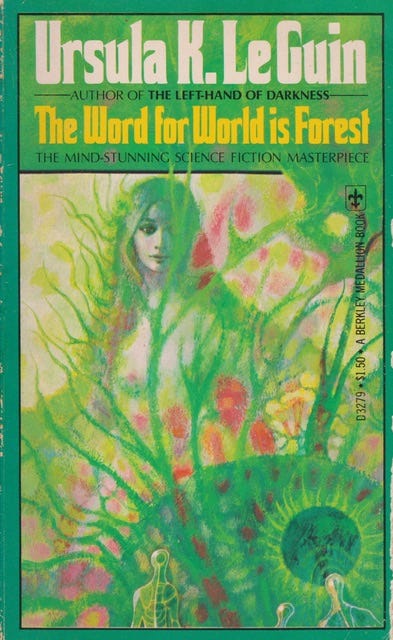
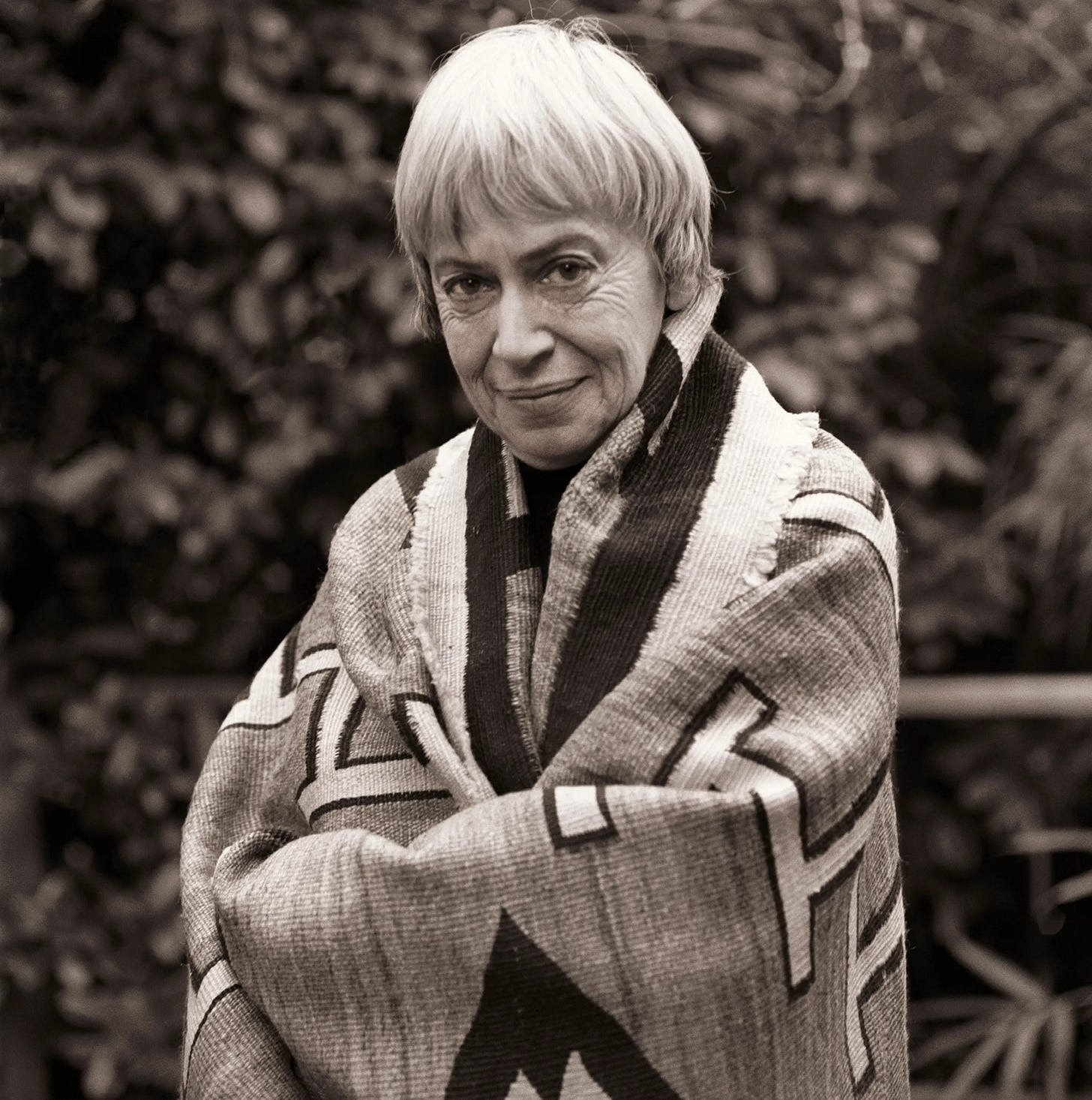
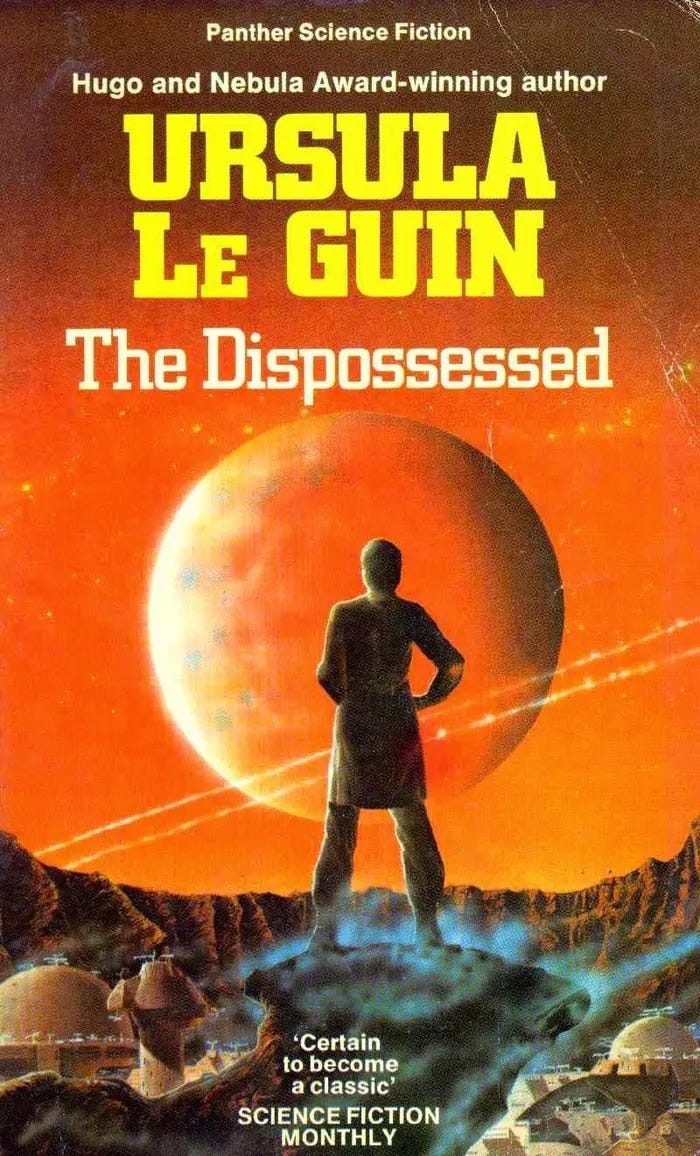
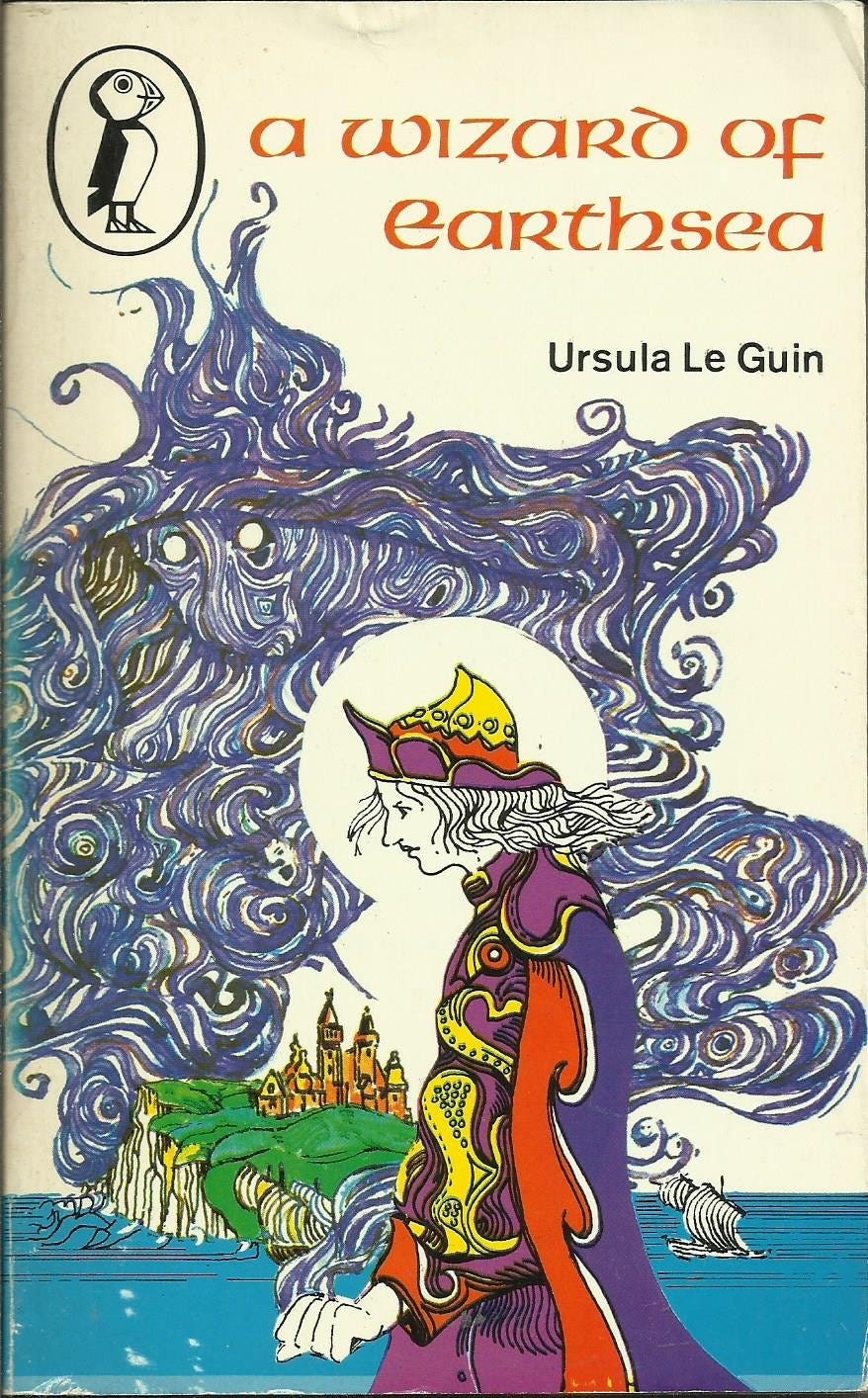
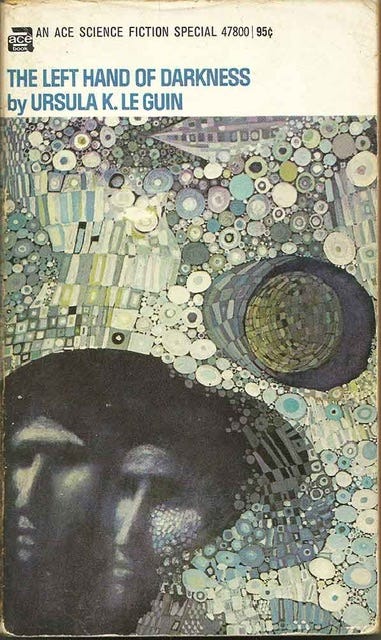
Thanks for reminding me about the depth of The Left Hand of Darkness. I have a genderless sibkid who might appreciate this recommendation from their aunty 💛
This is such a great theme for examining her work!